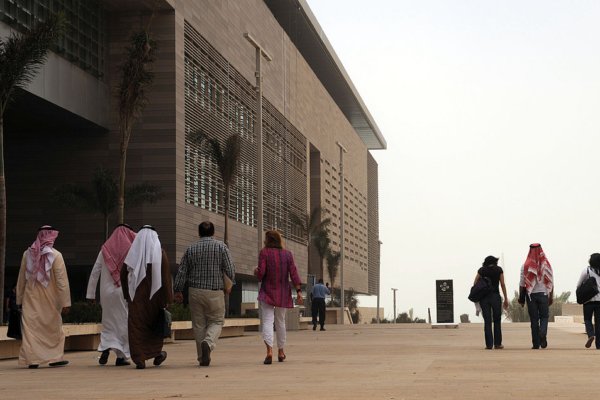The escalating technology war between the United States and China is increasingly focused on cutting-edge areas such as chips, AI, quantum computing, and more. The newly appointed president of a top academic institution in Saudi Arabia has pledged to halt any artificial intelligence cooperation with the Chinese Communist Party, citing concerns that such collaboration could jeopardize the institution’s access to American chips.
According to a report by the Financial Times on October 15, Professor Edward Byrne took office last month as the new president of King Abdullah University of Science and Technology (Kaust) in Saudi Arabia. He stated that he would prioritize relations within his familiar territories, namely the United Kingdom, Europe, and the United States, while ensuring that Kaust’s researchers have the necessary artificial intelligence technology to conduct their work.
“You are aware of which areas are more sensitive. I believe we all know what they are. I am dedicated to fully complying with all relevant national regulations, including those related to the United States,” he pledged in an interview with the Financial Times.
Byrne emphasized the importance of cooperation with the United States, stating, “As president, I am committed to complying with all U.S. trade regulations to ensure that these partnerships can continue. I still believe there is room for cooperation with China in many areas, but not in sectors where the U.S. government has strict guidelines on acquiring U.S. technology.”
Due to U.S. export controls, many channels through which Chinese companies could acquire advanced chip technology from the United States have been cut off. In late March of this year, the U.S. government once again revised regulations aimed at preventing the Chinese from obtaining American AI chips and chip manufacturing tools. Each revision appears to be more stringent than the previous restrictions, initially issued in the prior year and October of last year.
In the first half of this year, sources informed Bloomberg that the U.S. had slowed issuing licenses to American chip manufacturers such as NVIDIA and AMD for large-scale export of AI accelerators to the Middle East. U.S. officials also conducted national security reviews of AI development in the Middle East. The U.S. is concerned that the Middle East could become a channel for China to acquire American AI chips.
Byrne’s predecessor Tony Chan, who has left Kaust, expanded cooperation with China during his tenure. There are particular concerns about the university’s joint AI projects with the Chinese University of Hong Kong, Shenzhen and the Shenzhen Big Data Institute, focusing on building a large language model AceGPT with a focus on Arabic.
Established in 2009 by the late King Abdullah with a $10 billion donation, Kaust is Saudi Arabia’s first graduate research university. Internally at Kaust, there are fears that deepening collaboration with Beijing may lead to the U.S. cutting off the university’s channels to procure the latest computer chips.
Saudi Arabia is seeking to develop its domestic semiconductor industry. Earlier reports suggested that the U.S. and Saudi Arabia are engaged in a series of National Security Council talks, where U.S. officials have indicated to Saudi officials the need to make choices between American and Chinese technology.
In October of last year, the U.S. Department of Commerce imposed increased export restrictions on most parts of the Middle East, requiring companies to obtain special licenses from the U.S. government to ship advanced semiconductors and chip manufacturing tools to countries such as Saudi Arabia and the United Arab Emirates. These restrictions were originally targeted at the Chinese and other foreign adversaries.
In May of this year, Amit Midha, CEO of Saudi investment fund Alat, stated that the U.S. has only requested complete separation of manufacturing and supply chains so far. However, if cooperation with China raises concerns for the U.S., the fund will withdraw investments from China.

